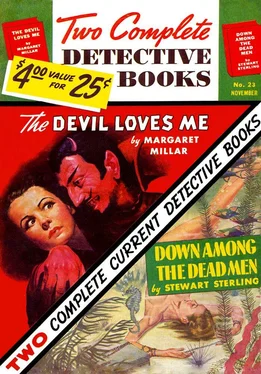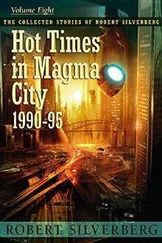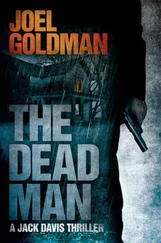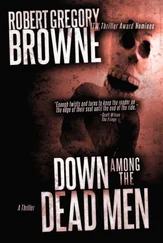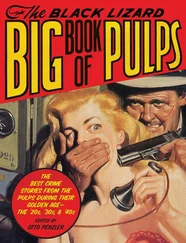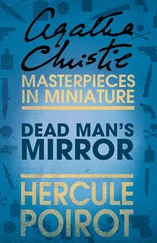“Merrill,” — Hurlihan picked his words cautiously — “won’t act to protect his own interests — to say nothing of Barabara’s. The Line is shaping up for a terrific breakdown. On paper, we’re making a profit. At sea, we’re losing so many ships we’ll be out of business in six months. That’s the thing some of us are trying to put a stop to.”
“What’ll you do? Keep ’em afloat with proxies?”
“We could cut our losses, under the right management.” The superintendent swore under his breath as a longshoreman slipped on the wet planking of the pier, nearly let a drum topple over. “Better engines, to hop up speed; it’s the ship that drags behind the convoy that gets versenkt . Better loading; to prevent cargo from shifting and cutting down knots. Younger captains, trained in blind navigation, so they won’t stray out of convoy at night. These new intercommunicating systems that won’t get out of kilter in an emergency.”
Koski growled: “Is young Ovett against improvements?”
“His father is. Because they cost dough. Merrill doesn’t seem to give a damn. The crowd I’m with want new blood at the top, to spend the money, save the ships. And the men. Doesn’t sound as if it would lead to manslaughter, does it?”
“Might be a connection. If somebody figured he could grab control by putting the Line on the rocks first.”
Hurlihan’s face puckered. “You suspect someone in the company of deliberately...” his voice trailed off.
“We have reason to believe the killer knew short-wave radio. Most likely way to communicate with the U-boats. The Seavett has a ship-to-ship set. Gjersten was on the yacht. So was Merrill Ovett. So were you.”
“Well!” The superintendent took off his hat, wiped off the sweat-band. “You don’t add that up and make a spy case out of it. Or a murder case. Everybody in the shipping business uses short-wave. Or used to. I had a set in my office; I turned it over to the Navy. What does that make me?”
“If I knew all the answers, I wouldn’t be asking questions.”
Moisture streamed down the superintendent’s face; more than could be accounted for by the mist. “Dammit, we aren’t the only company losing vessels. We’ve had some rotten breaks, but that doesn’t mean anything except that our management is dead on its feet—”
“I heard that record. Turn it over. Tell me how a man could discover when one of your ships is going out? This one, for instance?” He jerked a thumb over his shoulder at the freighter.
“He might be tipped off by someone who’s on a hatch-crew; they know when the Pobrico’s supposed to be loaded. Or someone connected with the longshoremen’s union, who’d hear about it when the men reported for new jobs.”
“But they wouldn’t know which route the ship was going to take?”
“Only way anyone could find that out would be to get into my office, study the location chart.”
“What’s the location chart? To show the position of your ships?”
“Every bottom we own or charter. Where they’re supposed to be every minute, day or night. But no one’s allowed in my office. It’s always locked when I’m not there. Nobody can get near the pier shed without being checked, double-checked and vouchered, these days.”
“Merrill ever go in there?”
“He might.” Hurlihan looked out past the freighter at the river, a sluggish, leaden stream under the glare of the loading lights. “He worked there for a couple of months, few years ago.”
“Still have a key, does he?”
“Don’t know. Some of the Line officials have. But anybody else would have to run the gantlet o-f our guards, the customs men, and the pier patrolmen.”
“Let’s have a peek at this location thing.”
The superintendent’s office was locked. Hurlihan used a key chained to his belt, pushed open a heavy steel door, let Koski into a long, narrow room at the end of the shed. From its window Koski could see out over the well-deck of the freighter. Light streamed up out of the hold, silhouetting men of the forward hatch gang — black gnomes against a yellow inferno. One of the explosive drums swung up over the side, hovered, spun slowly as it descended. The Harbor Squad man heard Hurlihan expel his breath in a long sigh.
The superintendent turned to a jumbo chart of the North Atlantic which covered one wall from floor to ceiling; the chart was covered with transparent plastic, which bore the greasy markings of colored crayons. Inch-long miniatures of steamships were sprinkled along the route north past Nova Scotia and Iceland; they bore markings: Santa Inez, Santa Felice, Santa Rosario. ..
On the long bare table in front of the chart were other miniatures, mounted on small, painted metal disks. One was labeled Santa Pobrico. Hurlihan picked it up, touched it to the cellophane. It clung to the chart just outside Ambrose Lightship off New York Harbor. “Sheet of zinc underneath the chart; it’s electrically magnetized so these widgets stick where we put them. Unless a torpedo knocks them off.” He touched the miniature of the Pobrico. “If you don’t stymie me, this is where she’ll be by nine o’clock tomorrow night.”
Koski nudged the ship-cymbol gently along on the chart a couple of inches. “What’re the red marks for, f’r instance?”
“Where we lost a ship.”
“What about the blue crosses?”
“Attacks.”
Koski saw a blue X a little below and to the right of Cape Hatteras. Beside it was printed in green ink: Santa Mercede.
“This the last one you lost, Hurlihan?”
“Yeah. One of my pals went down with that — the first officer. He wasn’t as lucky as Merrill.”
Koski didn’t act as if it was news. “The old man’s son been on any other Ovett ships that have been torpedoed... besides the Mercede?”
“Search me. If I knew what alias he used, I could find out from the log-files.” The superintendent couldn’t keep his attention away from the window; he was listening to the detective with a mixture of impatience and anxiety. “But you couldn’t suspect a man who actually sailed on board a ship that was sunk, anyway.”
“Couldn’t I?” Koski’s jaw jutted. “The sort of slug who’d tip off a sub-commander about a ship’s sailing might be able to fix it so he wouldn’t be among those missing after she went down.” He tapped Hurlihan on the chest with rigid fingers. “We’ve had it straight from the feed-box that young Ovett’s planning to ship out of the harbor today. If he goes out on your T.N. Tanker, you’ll have a hell of a lot of explaining to do, mister. Better make good and damned sure he doesn’t!”
A cold wind whined across the Hudson; at the bulkhead between Piers Eight and Nine, the Vigilant was drenched with fine chill spray that snaked down the windows of the pilot-house in rivulets like mineral oil.
Mulcahey was asleep on his feet, chocked off between the wheel and the shelf for flares and binoculars. Koski jerked at the siren cord hanging down from the cabin-top; a hoarse blast shuddered through the night. The Sergeant grabbed for his gun before he got his eyes open.
“Steady as she goes, Irish.”
“Was that you, blasting?”
“You must have heard the echo of your own snores.”
The Sergeant rubbed the sleep out of his face, looked at the clock on the instrument panel. “Has that thing stopped? Or is it quarter to four?”
“If you had a refreshing rest, chum—” Koski turned on the ignition key. “Let us then be up and doing.”
“Hark to the man. Have you no respect for your own constitution? The human system needs a little shuteye at regular intervals. Or are you an exemption to the rule?”
Читать дальше
